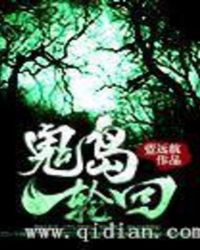LETTER 88
您可以在百度里搜索“The Works of Charles and Mary Lamb — Volume 5 艾草文学(www.321553.xyz)”查找最新章节!
LETTER 88
CHARLES LAMB TO THOMAS MANNING
[August,] 1801.
Dear Manning,—I have forborne writing so long (and so have you, for the matter of that), until I am almost ashamed either to write or to forbear any longer. But as your silence may proceed from some worse cause than neglect—from illness, or some mishap which may have befallen you—I begin to be anxious. You may have been burnt out, or you may have married, or you may have broken a limb, or turned country parson; any of these would be excuse sufficient for not coming to my supper. I am not so unforgiving as the nobleman in "Saint Mark." For me, nothing new has happened to me, unless that the poor "Albion" died last Saturday of the world's neglect, and with it the fountain of my puns is choked up for ever.
All the Lloyds wonder that you do not write to them. They apply to me for the cause. Relieve me from this weight of ignorance, and enable me to give a truly oracular response.
I have been confined some days with swelled cheek and rheumatism—they divide and govern me with a viceroy-headache in the middle. I can neither write nor read without great pain. It must be something like obstinacy that I choose this time to write to you in after many months interruption.
I will close my letter of simple inquiry with an epigram on Mackintosh, the "Vindiciae Gallicae"-man—who has got a place at last—one of the last I did for the "Albion";—
"Though thou'rt like Judas, an 'tate black,
In the resemblance one thing thou dost lack;
When he had gotten his ill-purchas'd pelf,
He went away, and wisely hanged himself:
This thou may do at last, yet much I doubt,
If thou hast any Bowels to gush out!"
Yours, as ever,
C. LAMB.
[The Albion was at the time of its decease owned and edited by John Fenwick, a friend of Lamb's whom we shall meet again. Lamb told the story in the Elia essay on "Newspapers" in the following passage:—
"From the office of the Morning Post (for we may as well exhaust our Newspaper Reminiscences at once) by change of property in the paper, we were transferred, mortifying exchanged to the office of the Albion Newspaper, late Rackstrow's Museum, in Fleet Street. What a transition— from a handsome apartment, from rose-wood desks, and silver inkstands, to an office—no office, but a den rather, but just redeemed from the occupation of dead monsters, of which it seemed redolent—from the centre of loyalty and fashion, to a focus of vulgarity and sedition! Here in murky closet, inadequate from its square contents to the receipt of the two bodies of Editor, and humble paragraph-maker, together at one time, sat in the discharge of his new Editorial functions (the 'Bigod' of Elia) the redoubted John Fenwick.
"F., without a guinea in his pocket, and having left not many in the pockets of his friends whom he might command, had purchased (on tick doubtless) the whole and sole Editorship, Proprietorship, with all the rights and titles (such as they were worth) of the Albion, from one Lovell; of whom we know nothing, save that he had stood in the pillory for a libel on the Prince of Wales. With this hopeless concern—for it had been sinking ever since its commencement, and could now reckon upon not more than a hundred subscribers—F. resolutely determined upon pulling down the Government in the first instance, and making both our fortunes by way of corollary. For seven weeks and more did this infatuated Democrat go about borrowing seven shilling pieces, and lesser coin, to meet the daily demands of the Stamp Office, which allowed no credit to publications of that side in politics. An outcast from politer bread, we attached our small talents to the forlorn fortunes of our friend. Our occupation now was to write treason.
"Recollections of feelings—which were all that now remained from our first boyish heats kindled by the French Revolution, when if we were misled, we erred in the company of some, who are accounted very good men now—rather than any tendency at this time to Republican doctrines— assisted us in assuming a style of writing, while the paper lasted, consonant in no very under-tone to the right earnest fanaticism of F. Our cue was now to insinuate, rather than recommend, possible abdications. Blocks, axes, Whitehall tribunals, were covered with flowers of so cunning a periphrasis—as Mr. Bayes says, never naming the thing directly—that the keen eye of an Attorney-General was insufficient to detect the lurking snake among them. There were times, indeed, when we signed for our more gentleman-like occupation under Stuart. But with change of masters it is ever change of service. Already one paragraph, and another, as we learned afterwards from a gentleman at the Treasury, had begun to be marked at that office, with a view of its being submitted at least to the attention of the proper Law Officers— when an unlucky, or rather lucky epigram from our pen, aimed at Sir J——s M——h, who was on the eve of departing for India to reap the fruits of his 'tacy, as F. pronounced it, (it is hardly worth particularising), happening to offend the nice sense of Lord, or, as he then delighted to be called, Citizen Stanhope, deprived F. at once of the last hopes of a guinea from the last patron that had stuck by us; and breaking up our establishment, left us to the safe, but somewhat mortifying, neglect of the Crown Lawyers."
There are, however, in Lamb's account, written thirty years afterwards, some errors. He passed rather from the Albion to the Post than from the Post to the Albion (see the notes in Vol. II.). Sir James Mackintosh was not in 1801 on the eve of departing for India: he did not get the post of Recordership of Bombay until two years later. The epigram probably referred to an earlier rumour of a post for him. His 'tasy consisted in recanting in 1800 from the opinions set forth in his Vindiciae Gallicae, 1791, a book supporting the French Revolutionists, and in becoming a close friend of his old enemy Burke. I have not succeeded in finding a file of the Albion, nor, I believe, has any one else.
"The nobleman in 'St. Mark.'" Lamb was thinking of Luke xiv. 16-24.] The Works of Charles and Mary Lamb — Volume 5




